

GIJN Turkish Editor and data journalism instructor Pinar Dag is back with another quiz to test your knowledge of data visualization.

GIJN spoke to Jordy Meléndez of the Latam Network for Young Journalists about how his organization trains reporters to work on collaborative investigative projects.


The third cohort of GIJN’s online training in cyber and digital threats investigations has now completed, graduating journalists from more than 26 countries.

The portrayal of journalists on film over the years has helped instil an understanding of what journalism is and what reporters do. Here are some of our favourites from around the world.

At the 2024 Journalism Practitioners Forum conference (J-Forum) in Japan, watchdog reporters came together to discuss their successful stories and share skills.

Tips from a workshop on how journalists and media outlets can better use YouTube in their election coverage.


 Threat from AI Audio Deepfakes" width="771" height="434" />
Threat from AI Audio Deepfakes" width="771" height="434" />


In GIJN’s digital threats training course, reporters from around the world will learn how to investigate the digital environment in order to understand and expose disinformation, online attacks, and manipulation.


Boyoung Lim went from police officer to investigative reporter to head of the Pulitzer Center’s AI Accountability Network — a career trajectory neither linear nor planned.
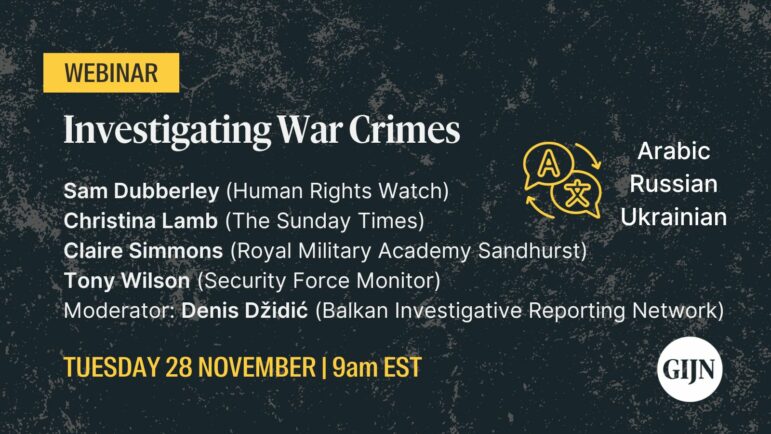

This week, the second cohort of GIJN’s six-week, online Digital Threats course begins, training 25 journalists from 22 countries around the world.

Programs to train and teach investigative reporting have spread worldwide, but how effective are different methods and styles? For this panel, we bring together educators and trainers from diverse environments in France, Slovenia, South Korea, and the United States for a look at both traditional and innovative techniques. ———————– The Global Investigative Journalism Network is […]
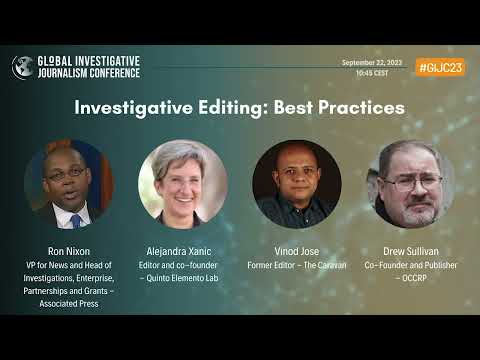
We know that becoming a great investigative reporter can take years. But what about the editors? It’s no secret that great investigative editors are hard to find. What makes a terrific editor for watchdog journalism? How do they keep their reporters sane, focused, and motivated? What do they do to protect them in the newsroom? […]
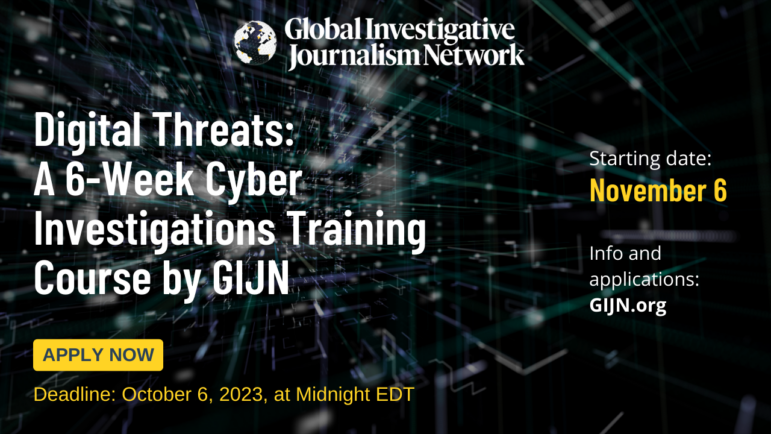
In this training course, reporters from around the world will learn how to investigate the digital environment in order to understand and expose attacks and manipulation.
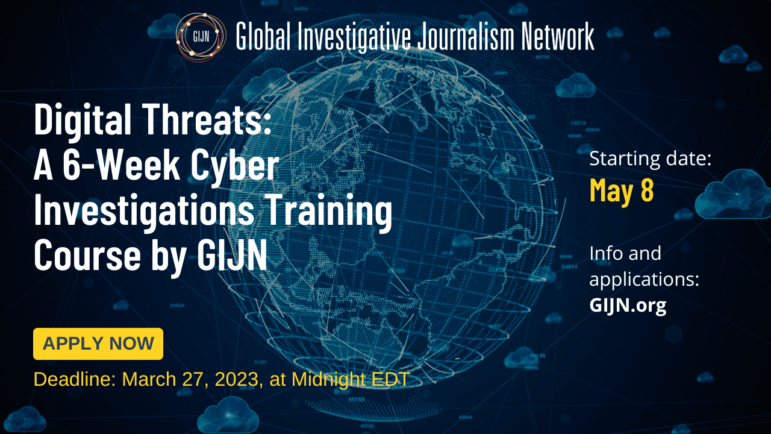
GIJN is offering a unique cyber reporting training program specifically tailored for investigative reporters. The course is free and limited to 20 participants. It will take place each Monday and Thursday for six consecutive weeks at 10 am EDT, starting on May 08, 2023. Apply here.

Practicing good mental hygiene is a continuous process for investigators that requires active input at all times. Bellingcat offers these small steps to minimize and mitigate your exposure to distressing content, to possibly save you from burnout or worse.

What is an application programming interface (API) and how can it help reporters gather information online? Data journalist Paul Bradshaw explains how to use this tool in your next investigation.
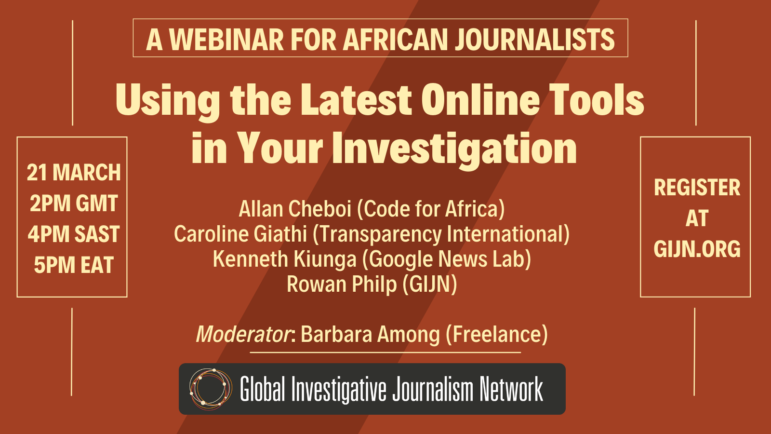
In this online webinar, free of charge for journalists across Africa and beyond, we bring together four journalism experts from Google News Lab, Code for Africa, Transparency International Kenya’s Media Tech Hub and GIJN, who will share their tips and advice about great online tools for journalists.
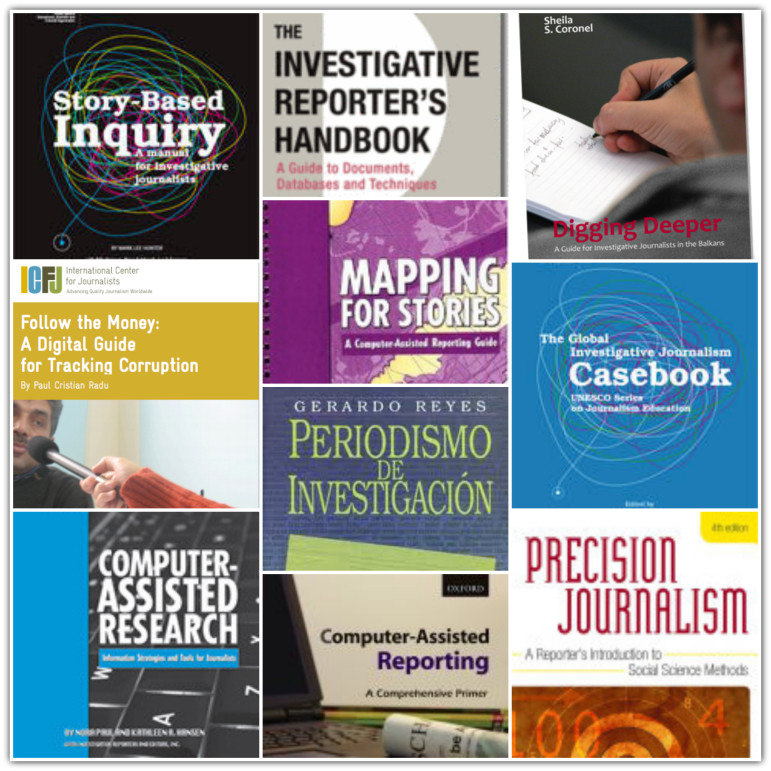
Investigative Journalism Data Journalism Teaching and Training Other Useful Guides Spanish Only Looking for tips, tools, and tutorials? The below guides focus on investigative journalism and provide case studies and examples from around the world. Most are available for free, unless indicated otherwise. You can also find our guide to the guides in Chinese and […]

Quiztime is a Twitter game beloved by journalists and other online sleuths who play it to hone their geolocation skills. Every day, one of the quizmasters tweets a mysterious image, and participants try to figure out where in the world it was taken by examining the minutest of clues.